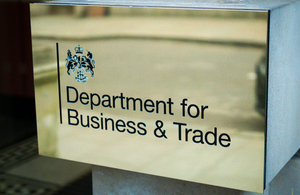New laws set to ban mandatory hidden fees from online shopping, saving money for consumers
New laws to be introduced to ban unavoidable hidden fees to force businesses to be upfront with customers

- Fake reviews will be added to banned practices
- Unavoidable hidden fees cost consumers £2.2 billion every year
Fake reviews, shop labelling and hidden fees that make shopping more difficult and expensive for consumers will all be targeted head on to clamp down on unfair trading practices.
Following a consultation into consumer transparency and as part of the Digital Markets, Competition and Consumer Bill (DMCC), the Department for Business and Trade will officially add fake reviews to a list of banned business practices, outlaw dripped fees that are unavoidable for consumers and ensure that businesses provide clearer labelling for prices on supermarket shelves.
These measures will be legislated for as part of the DMCC Bill as it progresses through Parliament.
Sneaky hidden fees, or dripped prices that are unavoidable will be banned. Drip pricing occurs when consumers are shown an initial price for a good or service while additional fees are revealed (or “dripped”) later in the checkout process.
Research suggests it is widespread and occurs in more than half of providers in the entertainment (54 percent) and hospitality (56 percent) industry, and almost three quarters across transport and communication (72 percent) sectors.
Every year, unavoidable fees cost consumers £2.2 billion, which is why these laws are being designed to ensure online shoppers have a clear idea of what they are spending upfront, to inform them as much as possible and as soon as possible before making purchases.
To make it easier for consumers to compare products and services, fees that are mandatory must be included in the headline price or at the start of the shopping process – these include booking fees for cinemas and train tickets. Optional fees such as airline seat and luggage upgrades for flights will not be included in these measures.
Minister for Enterprise, Markets and Small Business Kevin Hollinrake said:
From supermarket shelves to digital baskets – modern day shopping provides customers with more choice than ever before. But with that, comes the increased risk of confusion, scams and traps that can easily cost the public more than they had planned.
Today’s announcement demonstrates the clear steps we’re taking as a government to ensure customers can compare purchases with ease, aren’t duped by fake reviews, and have the sting of hidden fees taken away.
Reviews were found to be used by 90% of consumers and contributed to the £224 billion spent in online retail markets in 2022, which is why this government is committed to ensuring that the information available online is accurate and fair.
Working with the Competition and Market’s Authority, new guidance will be created in the coming months to tackle fake reviews which will be added to the list of banned practices, with website hosts held accountable for reviews on their pages.
The Price Marking Order (PMO), a piece of Retained EU Law, will also be reformed now we have taken back control of our laws.
The PMO requires traders to display the final selling price and, where appropriate the final unit price (e.g., price per litre/kilogram) of products in a clear way. The EU’s PMO laws were last updated 20 years ago and no longer reflect modern shopping habits.
We will be working with stakeholders and businesses to create new, simpler and clearer guidance for pricing labels that works best for British businesses and improves the shopping experiences for UK customers. This is expected to be issued in the spring.
Our proposed changes will ensure unit pricing is consistently applied, including to promotions and special offers, helping consumers compare products easily and identify what items represent the best value to them.
Small shops that are currently exempt from the PMO will continue to be exempt from those specific measures.
Graham Wynn, Assistant Director, British Retail Consortium said:
The BRC looks forward to continuing to work with officials as practical detailed implementation plans are developed. We are committed to ensuring information given to consumers is clear and they are not misled in any way.
We will also be making provision for the PMO in relation to the Deposit Return Scheme so the cost of the deposit is displayed separately on price labels.
In addition to fake reviews and hidden fees, the DMCC Bill will also look at other consumer issues including subscription traps, and will provide the CMA with stronger tools to investigate competition problems and take faster, more effective action, including where companies collude to bump-up prices at the expense of UK consumers.